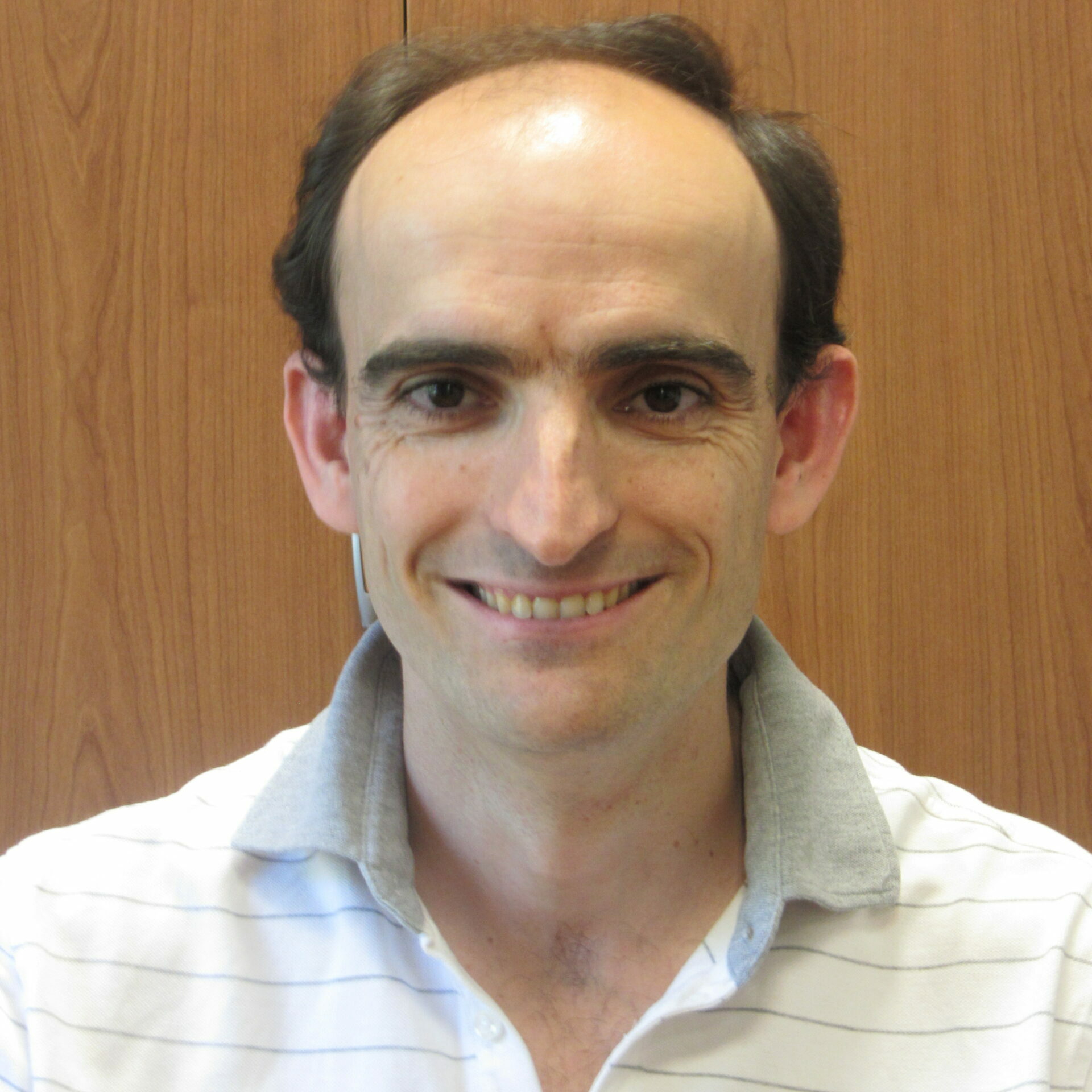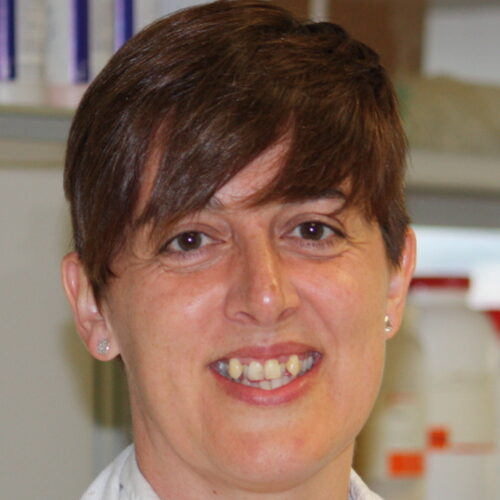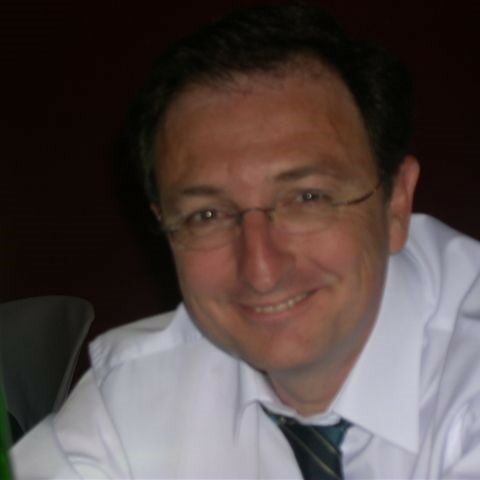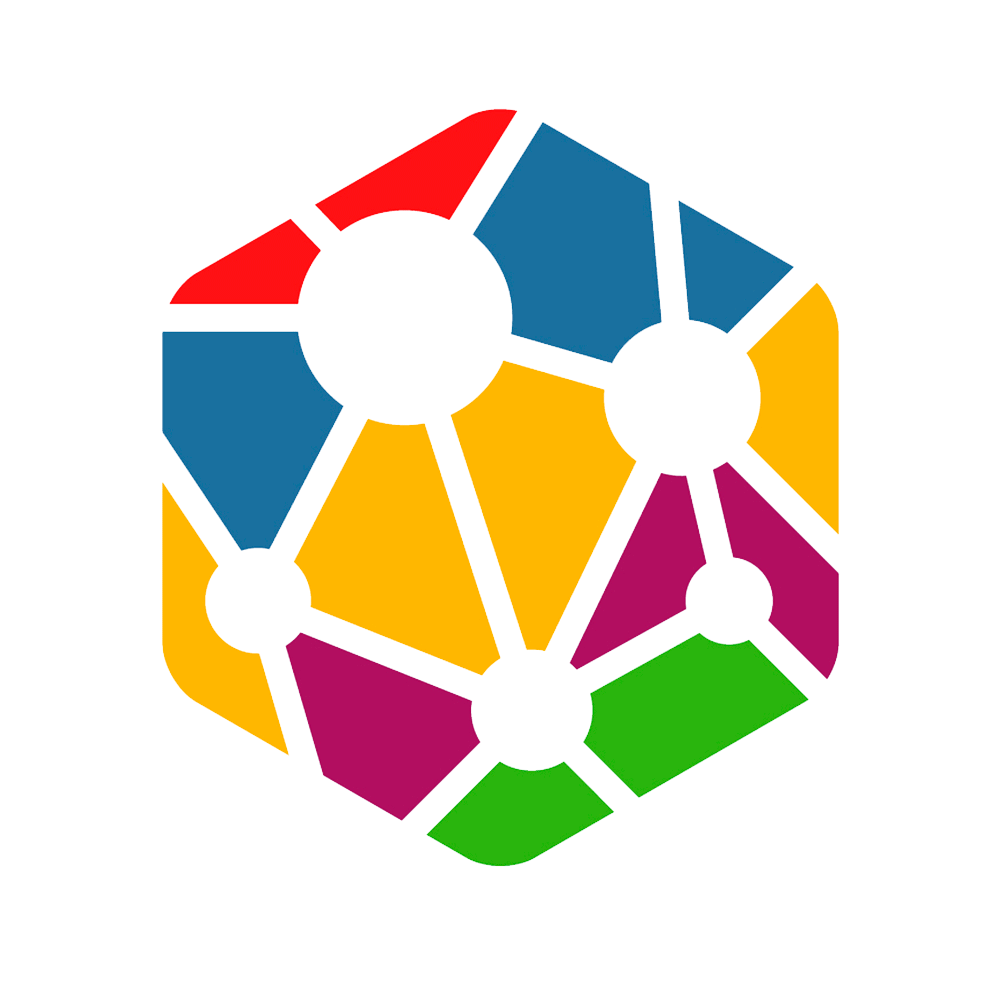AREA
TIC/ Information and communication technologies
SUB AREA
INF / Computer Science and Information Technology
KEYWORDS
BIOINFORMATICS; MACHINE LEARNING; DEEP LEARNING; ALGORITHMS; COMPUTER METHODS; ANALYSIS OF DIGITAL BIOIMAGES; MATHEMATICAL MODELS; BIOMEDICAL APPLICATIONS
SUPERVISORY TEAM

CÉSAR DOMÍNGUEZ
Supervisor
Dr. Cesar Domínguez is a senior Lecturer at the Department of Mathematics and Computer Science in the University of La Rioja. He holds a PhD in Mathematics by the University of La Rioja in 2003 and PhD Extraordinary Doctoral Award in 2004. One of his research lines focuses on the analysis of digital bioimages applying machine learning methods. In this line, computer systems which integrate the obtained machine learning models are developed. These systems are directly usable by biomedical professionals. Dr. Domínguez has published 51 articles included in scientific journals, of which 34 are indexed in JCR journals, some of them in the most important journals of the bioinformatics area such as BMC Bioinformatics, Briefings in Bioinformatics, or Computer Methods and Programs in Biomedicine; over 50 communications at conferences, and he has participated in several research projects: 1 EU project, 7 national projects and 11 local projects.

DR. YOLANDA SÁENZ
Co-Supervisor
Dr. Yolanda Sáenz graduated in Chemistry (1997) and got her PhD in Biochemistry and Molecular Biology (2004) by the University of La Rioja, Spain (UR). Her thesis was awarded by the “Extraordinary PhD Award”. She works at the Center of Biomedical Research of La Rioja (CIBIR) in Fundación Rioja Salud for more than 13 years, where she is now Leading Researcher of the Microbiology Molecular Area group coordinating a team of 5 staff members. Dr Sáenz’s laboratory supports different enterprises, research groups, hospitals or academic groups in works such as bacterial isolations, identifications or quantifications; the analysis of the antimicrobial activity of different compounds and products, or the optimization of protocols and developments.
Previously she worked as R&D project researcher for the Ministry of Education and Science of Spain (2004-2008). Dr Sáenz has participated in 26 research projects. She is co-author of 120 scientific indexed publications (h index: 39), 11 book chapters and more than 180 communications at conferences. She has a patent (EP: P201930265). She has supervised four PhD theses (currently codirecting five theses), six master projects and multiple student trainings. She has been awarded competitive grants and projects (Research grants from UR, FPI-UR, Carlos III Health Institute projects, AECID, postdoctoral internships).

PROF. MANUEL DOBLARÉ
Co-Supervisor
Prof. Manuel Doblaré has a degree in Industrial (mechanical and electrical) Engineering from the University of Seville and obtained his PhD from the Polytechnic University of Madrid in 1981. Since 1984, he has been Professor in the Department of Mechanical Engineering at the University of Zaragoza. Dr. Doblaré has received several awards, including the Prize for Excellence in Research from the Government of Aragon (2009) and the SEMNI prize to the whole research career (2019). He has been elected member of the World Council of Biomechanics, the European Association for Medical and Biological Engineering and Sciences, and permanent member of the Spanish Royal Academy of Engineering. Prof. Doblaré was promoter and first director of the Institute for Engineering Research of Aragon (I3A), promoter and first scientific director of the Research Networking Centre for Bioengineering, Biomaterials and Nanomedicine (CIBER-BBN) and member of different national and European commissions related to research. From October 2011 to May 2016, Prof. Doblaré was appointed Scientific Director and CEO of Abengoa Research, the Corporate Research Center of Abengoa. Prof. Doblaré has published more than 230 articles in ISI journals and more than 500 presentations at conferences. His H index is 67 (Google Scholar) and he has supervised 38 doctoral theses. In recent years, Prof. Doblaré’s research has focused on cell and cancer modelling, organ-on-chip systems and the combination of physical and data models with health applications.
RESEARCH GROUP
DESCRIPTION
The Computer Science Group of the University of La Rioja is a large research group that consists of 1 Professor, 9 Senior Lecturers, 6 Lecturers, 3 Associate Lecturers, and 6 Ph.D. students. Our research group is a multidisciplinary group wherein researchers in the areas of Mathematics and Computer Science work in different research lines including symbolic computation systems in Algebraic Topology, formal methods, software verification, or metamodelization. Since 2010, we are working in a research line devoted to applying mathematical and computational methods to build tools for image processing in collaboration with specialists in life science fields such as medicine, biology or agriculture. In this research line, we apply artificial intelligence techniques to develop algorithms and tools that can be employed by the life scientists in their daily routines to solve problems in their fields. This research line is of the greatest interest at the moment to contract a postdoctoral researcher. Just in the last three years, work on this new research line has resulted in relevant achievements: 10 articles in important bioinformatics journals (Neuroinformatics, Computers in Biology and Medicine, BMC Bioinformatics, or Computer Methods and Programs in Biomedicine) and 2 funded projects. The group is part of the multidisciplinary research cluster Big Data and Computing together with groups from other Campus Iberus Universities.
OUTPUTS OF RELEVANCE
- Participation in the EU project FP7-ICT-2009- C FET-Open 243847, ForMath: Formalization of Mathematics.
- National interdisciplinary research project (MTM2017-88804-P) entitled “Computer algebra: formalization and applications to network reliability and biomedical images”
- Regional interdisciplinary research project (ADER 2017-I-IDD-00018) entitled “CLODE: Framework for classification, localisation and detection of objects in images and videos for Industry 4.0”
- Four registered bioinformatics software.
NETWORK OF COLLABORATORS
Fundación Rioja Salud, Spain.
Innovative Business Group of the ICT sector of La Rioja – AERTIC, Spain.
Other national collaborators: University of Zaragoza, University of the Basque Country, University of Sevilla, Center for Biomedical Research of La Rioja (CIBIR), Center for Biomedical Research of A Coruña (INIBIC), Aragón Institute of Engineering Research (I3A), etc.
International collaborators: Auburn University, Joseph Fourier University, University of Innsbruck, etc.
CAREER DEVELOPMENT
PROPOSED SECONDMENT
A research secondment for 3 months will be possible at the Fundación Rioja Salud at the Molecular Microbiology group led by Dr. Sáenz, which works on the characterization of mechanisms in bacterial resistance to antimicrobial action. Techniques of Microbiology, Molecular Biology, Sequencing and Bioinformatics tools are used for that purpose. As an outcome a large quantity of digital images and data are generated, which require optimization, automation and processing. The postdoctoral researcher will collaboratively work on that applying mathematical and computer based methods, which may generate patents and commercially exploitable results.
DESIRABLE DEVELOPMENT
Employability
International mobility
Building collaborative networks
Trainings
Application of projects and funding
TRAINING SKILLS
Project management
Time Management
Communication to the civil society and public engagement
Open Science
Specific skills: Skills in a programming language, image processing and machine learning
OTHERS
Our research group has a rich network of national and international collaborators (in the areas of Mathematics and Computer Science, life science fields, and ICT business) that can be exposed to the postdoctoral researcher. An example of the success of our research in collaboration with the worlds of health and ICT business is the GelJ tool (https://sourceforge.net/projects/gelj/). GelJ is a Java application designed for analysing DNA fingerprint images.


